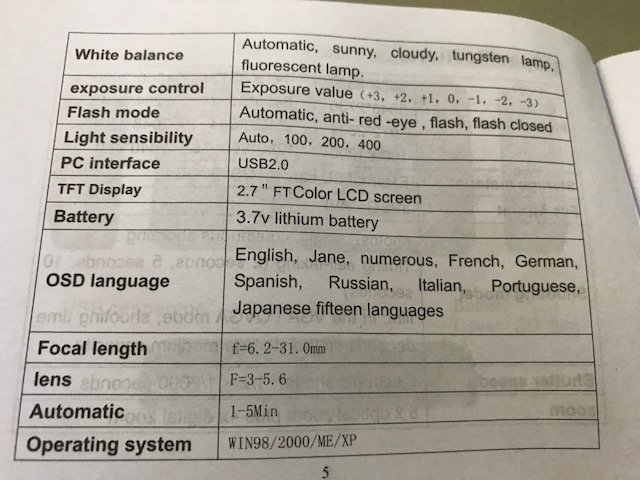Annals of poor translation
« previous post | next post »
Below are two pages from the instruction book for a small point and shoot digital camera (the original in Chinese and the corresponding page translated into English). As you can see, the language display has a couple of strange choices.
jiǎn Zhōng 简中 ("simplified Chinese [characters]")
fán Zhōng 繁中 ("traditional Chinese [characters]") — fán 繁 literally means "complex; complicated; numerous", referring to the number of strokes compared to the simplified characters
For the first, the instruction manual follows Google Translate in giving "Jane", roughly approximating the sound of jiǎn 简. For the second, it give "numerous", whereas Google Translate gives "traditional".
It's ironic that the manual messes up only the Chinese when that is the language of the original text, and handles all the other languages correctly.
[Thanks to Rob Perez]


Adam F said,
July 17, 2017 @ 3:16 am
What's the explanation for "Japanese fifteen languages"?
Rob P. said,
July 17, 2017 @ 4:02 am
We had used the character recognition version of Google translate and got, "in the complex" for the second string.
Victor Mair said,
July 17, 2017 @ 6:30 am
@Adam F
Good question.
The Chinese at the tail end of the sentence reads:
===
…Rìyǔ děng yǔyán …日语等语言 ("…Japanese, etc. languages", i.e., "Japanese and other languages").
===
The Chinese text does not specify a total of fifteen languages; that information is given only on the English page. There are five other languages available in the camera's language display that are not named, neither on the Chinese page nor on the English page.
ajay said,
July 18, 2017 @ 6:19 am
I am trying to remember which website gave users the option not of "English (US)" and "English (British)" but "English (simplified)" and "English (traditional)"…
Silas S. Brown said,
July 18, 2017 @ 8:40 am
The Wikipedia article on "automation bias" mentions the use of spell-checking programs (I'm shore your pleased two no aye make know miss takes at awl) but it doesn't mention anything about the tendency of some people not to question the output of a machine translator. If we can find a Wikipedia-acceptable "reliable source" to cite, we can add it. I've seen plenty of bad machine translations from English into Chinese as well as the other way. On the other hand I have seen good human translators do it very well indeed.
Irl said,
July 21, 2017 @ 7:29 pm
Excuse me stewardess, I speak Jive.
Tom davidson said,
July 22, 2017 @ 11:00 am
and we have 多米諾 for dominoes and 他媽的就死 for tomato juice